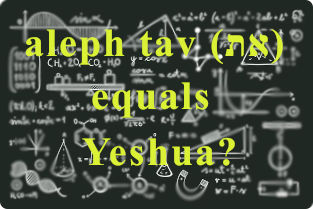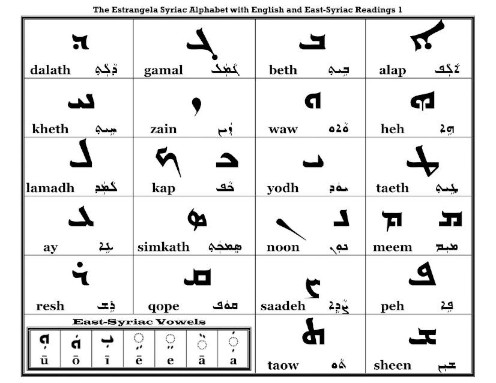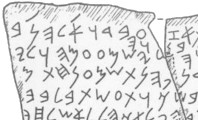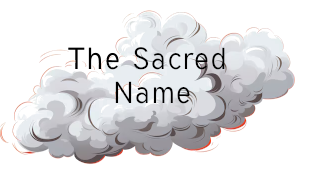
How (not) to Study
This part of the website is devoted to help Bible students to be better students. It is also meant to be informed about popular teachings that, on the surface seem wonderful, but upon more careful examination, have serious flaws due to misinformation.

How to study
To some people studying seems so old fashioned. They think that it is only for a certain type of people. Today, if you want to know something, you just use Google or similar tools. So, why would you study the Bible and how is that beneficial? Here are some reasons in random order:
- ‘… to be adequate, equipped …. (from 2 Timothy 3:16) Adequate can be explained as sufficient to live in accordance with Gods plan and enjoy that life.
- to see the Messiah. Yeshua tells us to look in the Torah in order to see Him. “And beginning with Moshe and with all the prophets, He explained to them the things concerning Himself in all the Scriptures” (Luke 24:27).
- to teach the Torah to others. In that way we can help others to live the that God designed for them.
At this point, you might be asking: how can I study in a proper and beneficial way? Well, we’re glad you asked. Here are a few points that, once put into practice, can help you tremendously:
- start studying the Bible or continue with it
- use 2 or even maybe more translations in your language – be cautious with Bibles that are more paraphrases then translations.
- study yourself and with others
- use a notebook to write down your questions, observations and findings
- use commentaries after you studied yourself
More information is giving the article ‘How to Study the Torah‘ and in the (small) book ‘Open My Eyes’. See the page ‘Books’.
Your personal library
A carpenter has his own tools he is familiar with. So does a car mechanic and many more. For your own study there are also tools that can help. But …. where to start?
We compiled two lists for you:
- a basic list with items nearly everybody uses frequently (see below) and
- a more elaborate list organized by category.
Before buying considere borrowing (and returning) from a friend. In that way you can experience the value by using it. And, bear in mind that the goal of studying is not to pile up more knowledge but to become more and more as the creation you are created to be. That will be beneficial to yourself and to others and it will glorify your Father and Creator.
The basic list might consist of:
- 2 or more Bible translations (like the NASB, ESV, NET). We suggest at least one paper version to use as your ‘own’ Bible
- an atlas e.g. Satellite Bible Atlas, by William Schlegel
- a concordance to find where a word or phrase is used in a certain translation (also online e.g. blueletterbible.org)
- a dictionary, we suggest:
- 1 volume: Eerdmans Dictionary of the Bible or
- 5 volumes: International Standard Bible Encyclopedia (also online)


Using Strong’s …. but
A lot of people know about Strong’s or more officially, the Exhaustive Concordance of the Bible based on the King James translation of the Bible.
The Strong’s numbers themselves are a handy way to reference Bible words and verses. But to bring forth the biblical author’s intended meaning in a better way avoid using the Strong’s Dictionary.
In this one-page overview the pro’s and cons of Strong’s are given as well as (on-line) alternatives.
That is indeed the question
Is the Hebrew word, alef-tav, one of the many names for God found in the Hebrew Scriptures? This has sometimes been said by well-meaning Bible teachers and copied by many others.
Here is how the thinking goes: Alef is the first letter of the Hebrew alef-bet (alphabet), so it signifies the fact that God (or Yeshua) is the First, the Beginning. Tav is the final letter of the Hebrew alef-bet, therefore, God (or Yeshua) is the Last, the End. Those who hold to this view often cite Genesis 1:1 as an example where we can see that right from the beginning of creation, God is the First and the Last, since alef-tav is used in the very first verse of the Bible.
But ….. what does it really mean?
In passages like Genesis 1:1, alef-tav serves as a point in Hebrew grammar. It is related to the Hebrew word for “sign”. Because of this relationship, alef-tav is used in Hebrew grammar to designate which word in the sentence is the direct object. Therefore it is, simply the “sign” of the direct object, when a sentence has a direct object. It is nothing more and nothing less. As the sign of the direct object, alef-tav is not to be translated. It has no translated meaning.
Rob Vanhoff, of Torah Resource, gives more background information, click on this link.


What English Translation of the Apostolic Scriptures Should I Use?
Is an English translation of the Syriac Peshitta more trustworthy than the English translations based upon the Greek manuscripts? Tim Hegg shows in a 16 page essay the story and concludes:
Syriac Peshitta manuscripts represent a biblical text that is later than the Greek manuscripts. None of the earliest Peshitta manuscripts contain the entire Apostolic Scriptures. The earliest manuscripts of the Peshitta only contain the Gospels, and even these are not complete.
Furthermore he advises:
- Read a good English version (like the NASB, ESV, NET), compare it with other translations, and you’ll be miles ahead in your study of the Scriptures.
- Hold translations made by a single individual, or even the corroboration of two or three individuals, with some amount of suspicion and do not use them as one’s primary Bible, i.e., the Bible that one normally reads.
You can download the essay here. For other valuable information take a look at torahresource.com.
Deeper insight with Paleo-Hebrew?
The following idea attracted many people:
“The Hebrew alphabet still maintains a pictographic meaning and if you understand the original pictrographic meaning of the letters you can get more insight into the Scripures”.
In a short article we will explain:
- How it works,
- how to check the method, and
- why the method doesn’t work.


The Sacred Name – Escaping the Maze of Misinformation,
Does the very speaking of the Name have some kind of innate power? If one knows how to pronounce the Name, does one have a spiritual weapon which those ignorant of the Name lack? In a lecture of 70 min Tim Hegg addresses these questions. The list below gives a number of points in the lecture with a timestamp.
- 3:20 Current trends
- 10:00 Why so hard to determine the sacred name? Introduction of vowel points by the Masorites.
- 30:25 The original pronounciation recovered? What did the churchfathers do with the Tetragrammaton? YHVH in the the Greeks manuscripts (LXX and the Apostolic Scriptures)
- 48:25 The heart of the Issue
The lecture is available on youtube with this link. There is also an article on TorahResource.com about this subject.
We further recommend other articles on the TorahResource site.